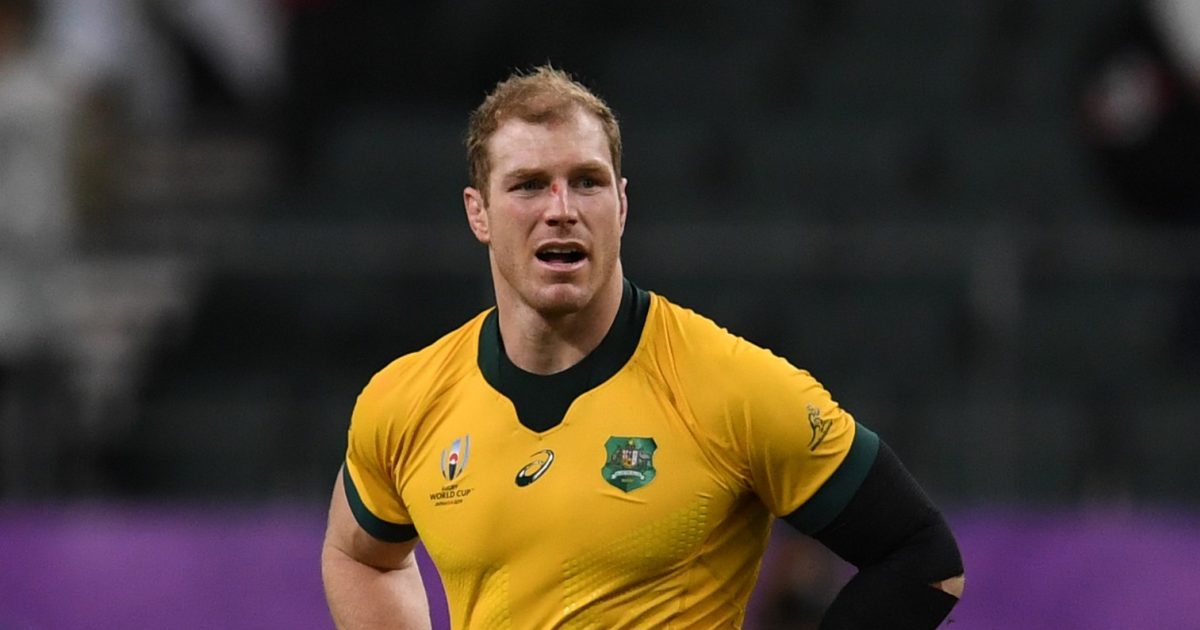David Pocock: ‘Climate change is an existential threat to the game we love’

Australia legend David Pocock has warned that “no part of our sport will remain untouched” as World Rugby published what it described as a landmark report into the impact of climate change on the game.
On Tuesday, to coincide with World Environment Day on June 5th, World Rugby released the ‘Rugby and climate change’ report, which aims to raise awareness of the future issues facing the game should global temperatures increase by 2°C or more.
Drawing on scientific evidence from the Intergovernmental Panel on Climate Change (IPCC), as well as input from climate and sport experts and data from member unions, the document details specific impacts on 10 rugby nations.
Those threats include a surge in extreme heat days, intensity and frequency of droughts, heavy rainfall and flash floods, and increased humidity levels. One in 10 of the major stadia researched worldwide, meanwhile, will be exposed to an annual submersion risk.
Gloucester’s Kingsholm, Optus Stadium in Perth and HFC Bank Stadium in Suva are among the grounds at risk, as are five of the 14 major venues in New Zealand, including Forsyth Barr Stadium in Dunedin.
Introducing the report, World Rugby Chairman Sir Bill Beaumont urged global rugby stakeholders to “come together to protect the essence of our beloved sport” and that is a sentiment echoed by Pocock.
The 83-cap Wallaby has long campaigned for greater action around climate change in Australia and has served as a senator in the country’s parliament since June 2022.
Describing the devastating impact the 2019-20 Black Summer Bushfires had on his hometown, Canberra, Pocock writes in the report’s foreword: “Climate change is no longer a future threat to our communities. It’s already here.
“The burning of coal, oil and gas, and ongoing deforestation are driving the extreme weather events we’re seeing impacting our communities. From heatwaves to bushfire smoke, lethal humidity, flooding and drought, rugby is not immune.
“What this report powerfully shows is that tackling climate change is not a ‘nice to have’. It cannot be an issue we tack on as an afterthought. Climate change is an existential threat to the game we love.
“As you read this report, you’ll find that no part of our sport will remain untouched under these two-degree plus scenarios. The impacts of climate change are not evenly distributed.
“Those affected first and worst are those who have contributed least to the problem and have the least resources to adapt. Here in Australia, we’re facing challenges, but these pale in comparison to those of our Pacific neighbours – countries that have contributed little to climate change but so much to the game of rugby.
“At this point, every fraction of a degree matters. We’ve just crossed 1.5 degrees of warming. We must do whatever we can to turn this trajectory around because climate change won’t just threaten the future of the game we love, it will affect all the people and places we love.
“I hope this report will ensure the minds of those responsible for governing our game are turned to focus on this challenge. We cannot sit on the sidelines any longer, we all have a role to play.”
The World Rugby report concludes with six recommendations to “enhance rugby’s resilience to climate change”.
These proposals include a call for all the game’s stakeholders to develop and implement plans to reduce rugby’s environmental impact, engage in climate change action at a local level, and conduct research into adapting and modifying the game to make it more resilient.
Beaumont said: “This report aims to answer some of the key questions around climate change by extrapolating the available scientific evidence and peer-reviewed studies and applying them in the context of rugby participation.
“It is my sincere hope that the findings contained in this landmark study will not only raise awareness within our rugby family but also serve as a catalyst for collective action at all levels of the game; and that its recommendations will inspire initiatives that foster sustainable practices, mitigation, adaptation, and resilience within our sport.”






































































Climate changes doesn’t forgive your illegal jackaling during the WRC…j/k or am I?
WR will bring in the “compulsory wearing of sunscreen” next season.
“Those affected first and worst are those who have contributed least to the problem and have the least resources to adapt.” He hit the nail on the head